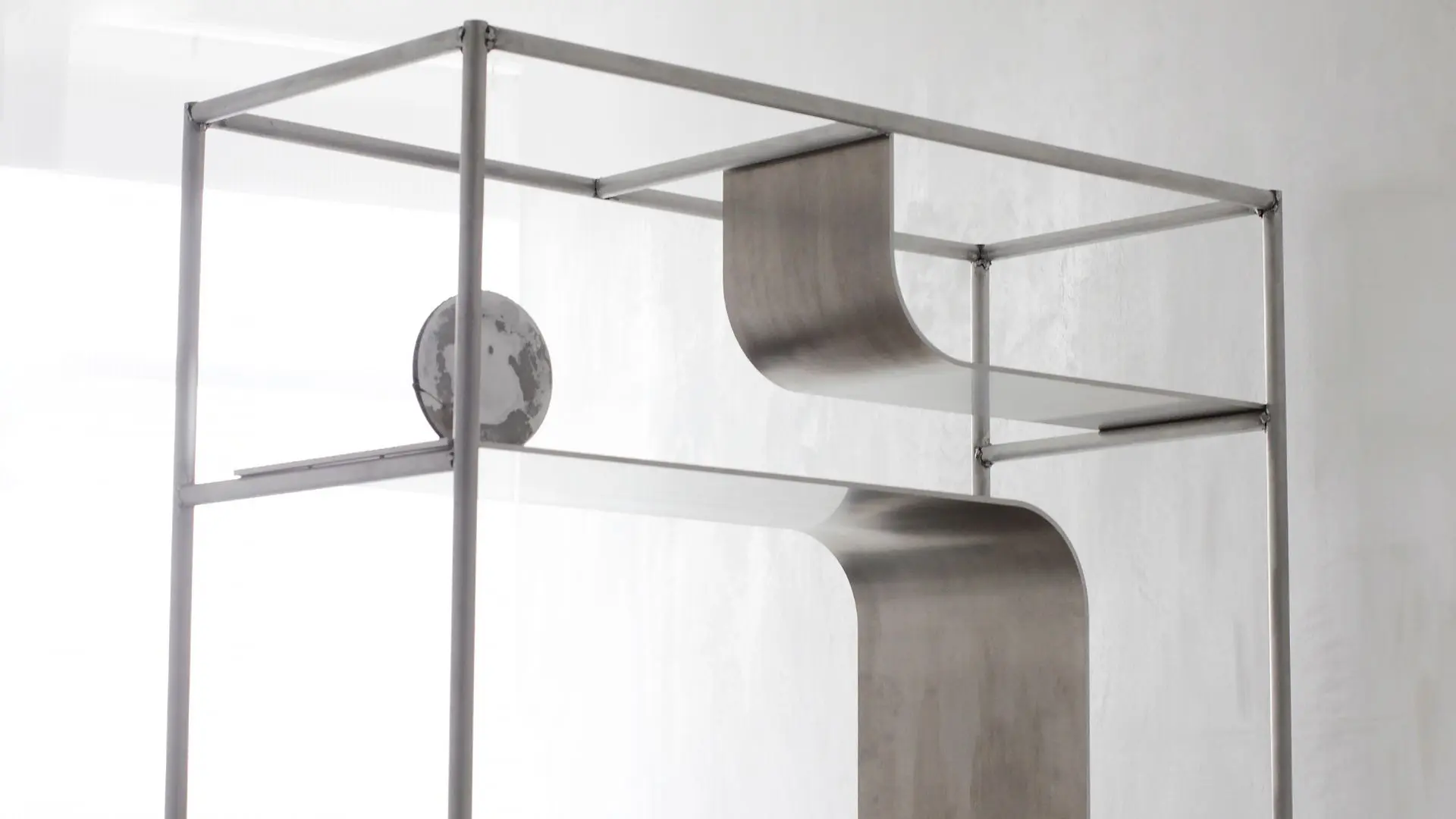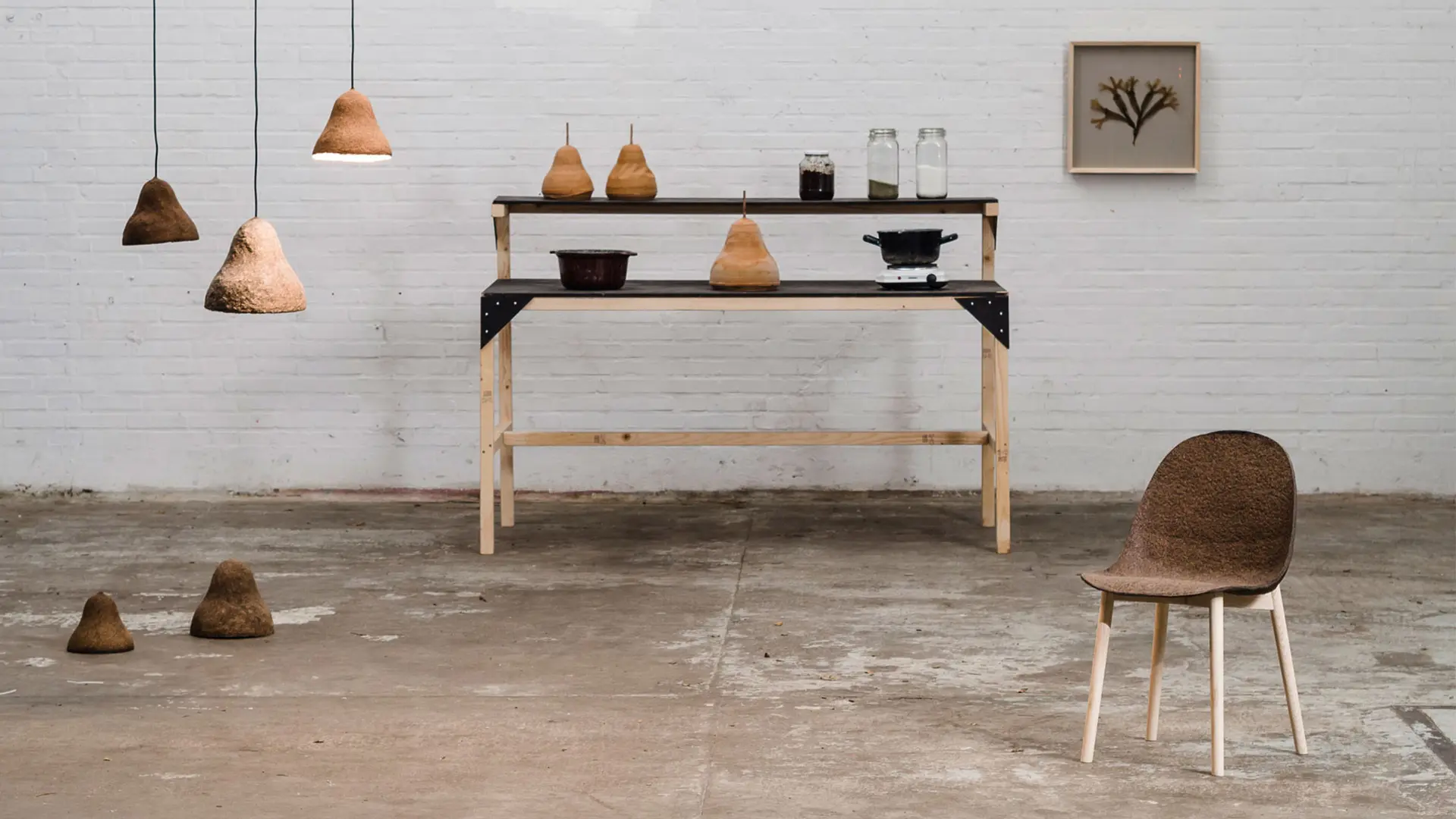Seastex: rediscovering mussel beards for performative applications
Nowadays, a lot of research and tinkering is carried out to create biobased materials starting from natural resources, with special attention to a raw material supply that does not interfere with food value chains.

Have you ever enjoyed a plate of mussels but were bothered by their ‘beard’? Well, the annoying plastic-like filament is actually a natural fiber, known in ancient times in the Mediterranean area as ‘Seasilk’ and revamped by the UK-based company Seastex for modern applications.
Nowadays, a lot of research and tinkering is carried out to create biobased materials starting from natural resources, with special attention to a raw material supply that does not interfere with food value chains. In particular, food production waste and byproducts are investigated as potential base materials to substitute the widespread synthetic i.e. fossil-based artifacts, while addressing the leftover issue of highly industrialized food production and processing. In the list of material sources linked to the food industry, we can also count mussels, clams and crustaceans as bio based components for innovative alternatives to commodities.
Seastex – rediscovering mussel beards:
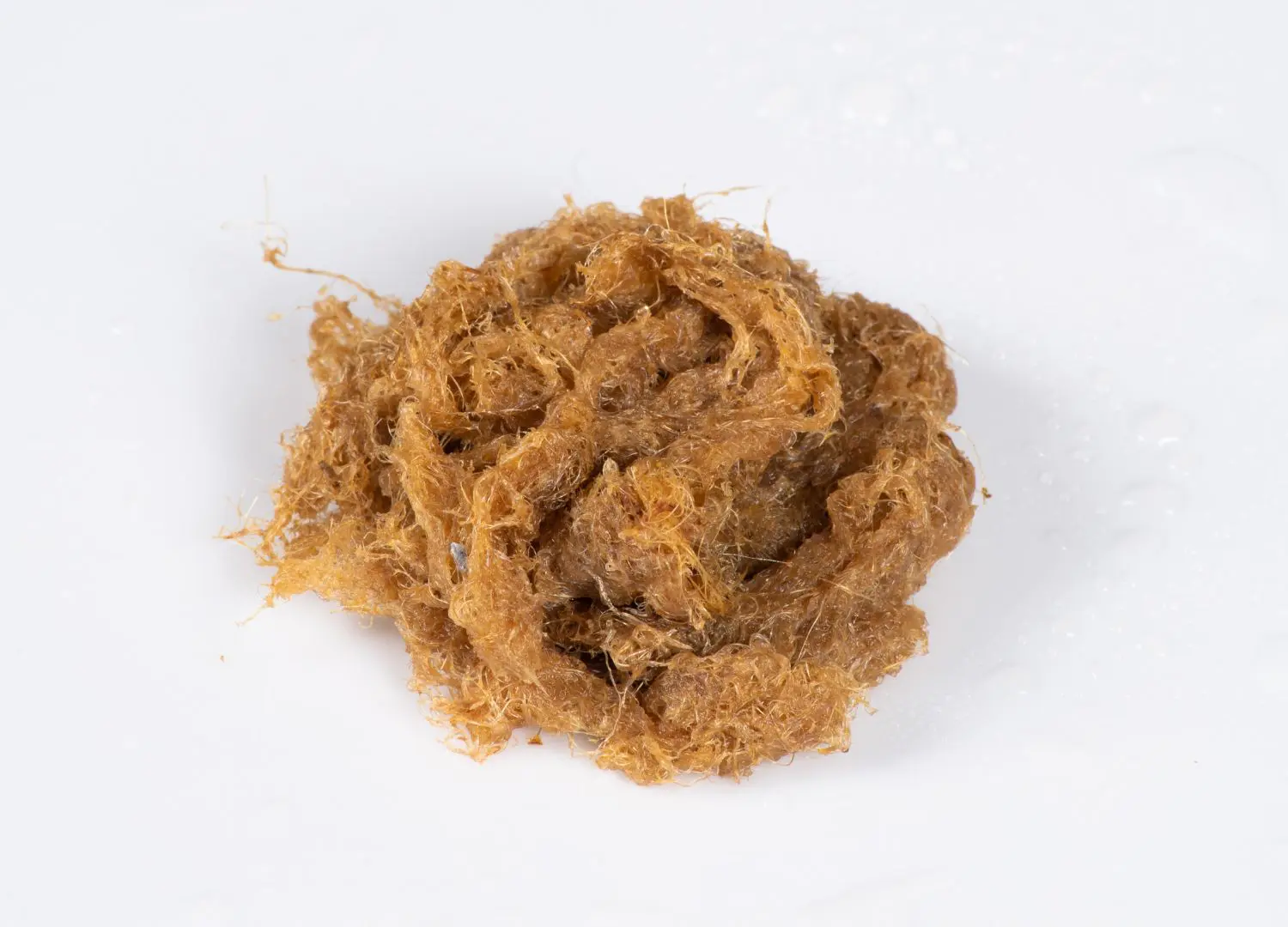
The origins of Seastex
Byssus filaments are natural fibers created by certain kinds of marine and freshwater bivalve molluscs, which use the byssus to anchor themselves to rocks, substrates, or seabed. In edible mussels, the byssus – the ‘beard’ – is inedible and is typically removed before cooking or packaging.
Seastex Ltd, founded in June 2021, developed a groundbreaking method to convert mussel beard waste into high-quality materials for the built environment. Initially filled with broken shells, algae, sediment, and an unpleasant odor, this discarded mussel waste undergoes a transformative process through an exceptional eco-friendly formula to obtain clean, novel byssus fibers.
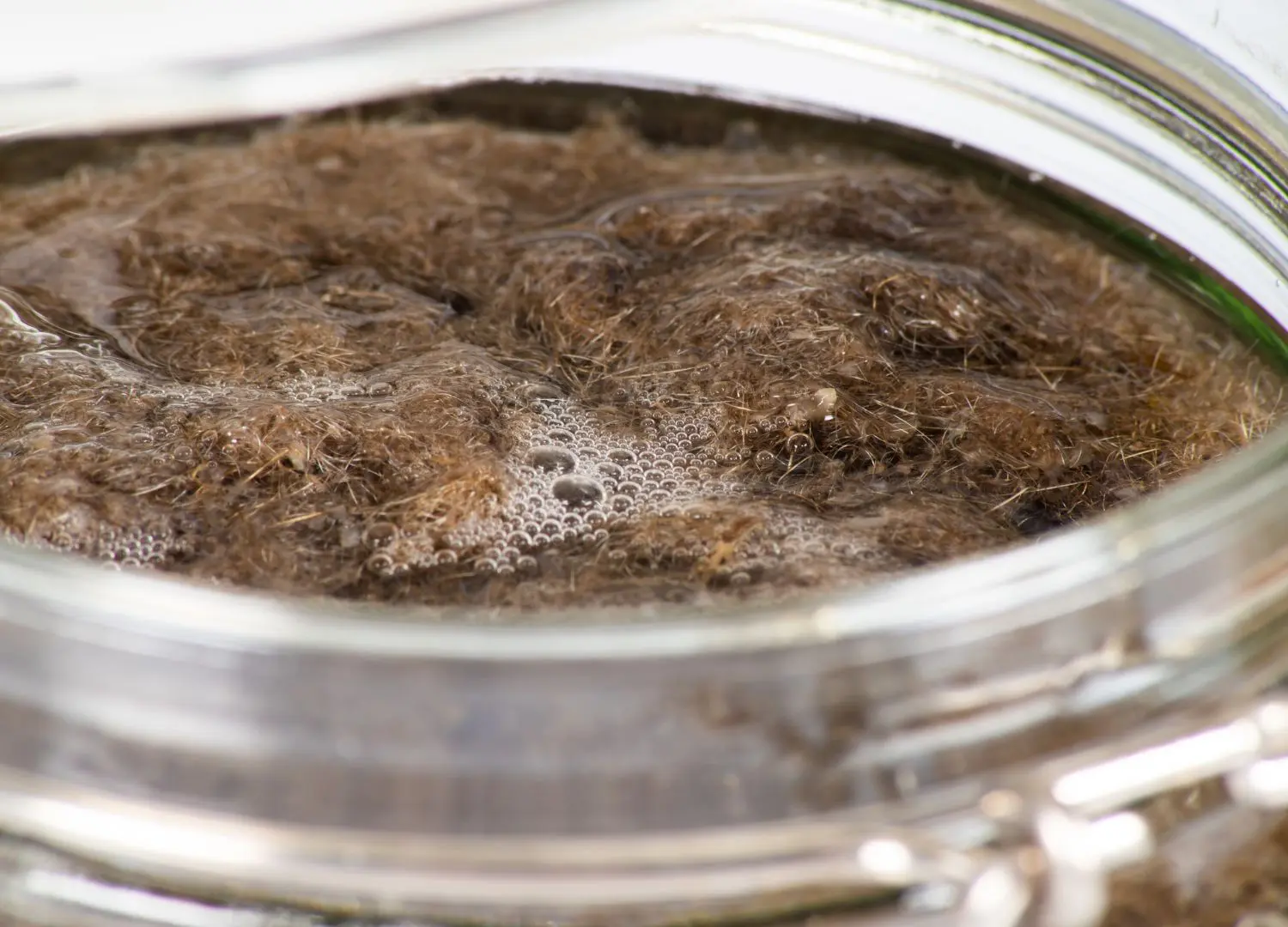
In comparison with traditional natural fibers such as sheep wool, cotton, hemp, or silk, mussel beards offer a sustainable and environmentally friendly alternative since mussels do not require feeding, antibiotics, or pesticides, reducing the negative impact on ecosystems. Moreover, mussels have the remarkable ability to take up carbon dioxide (CO2) when growing, contributing to mitigating climate change. Additionally, mussels play a crucial role in water filtration by filtering microplastics, algae, bacteria, and other small particles, thereby improving water quality.
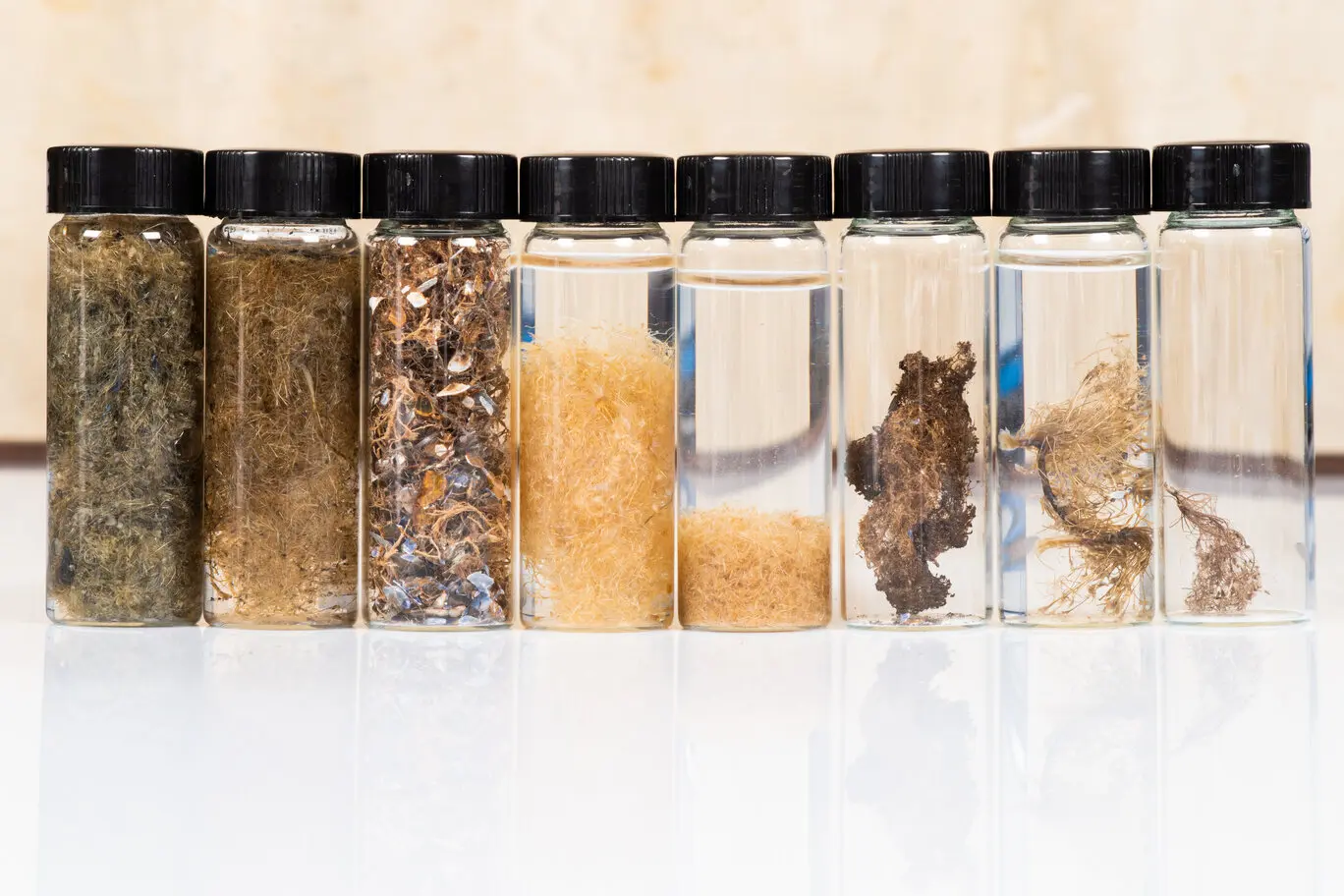
Properties & Applications
The unique characteristics of this natural material offer great potential as a high-value and long-lasting material for different applications. Seastex’s eco-friendly solution in processing highly polluted mussel waste allows the company to effectively cleanse large quantities and transform the byssus fibers into a uniform and homogeneous material. By developing novel fiber-processing technology, Seastex has further revolutionized this byssus material, turning it into a cloud-like substance that Seastex refers to as ‘Seawool’.
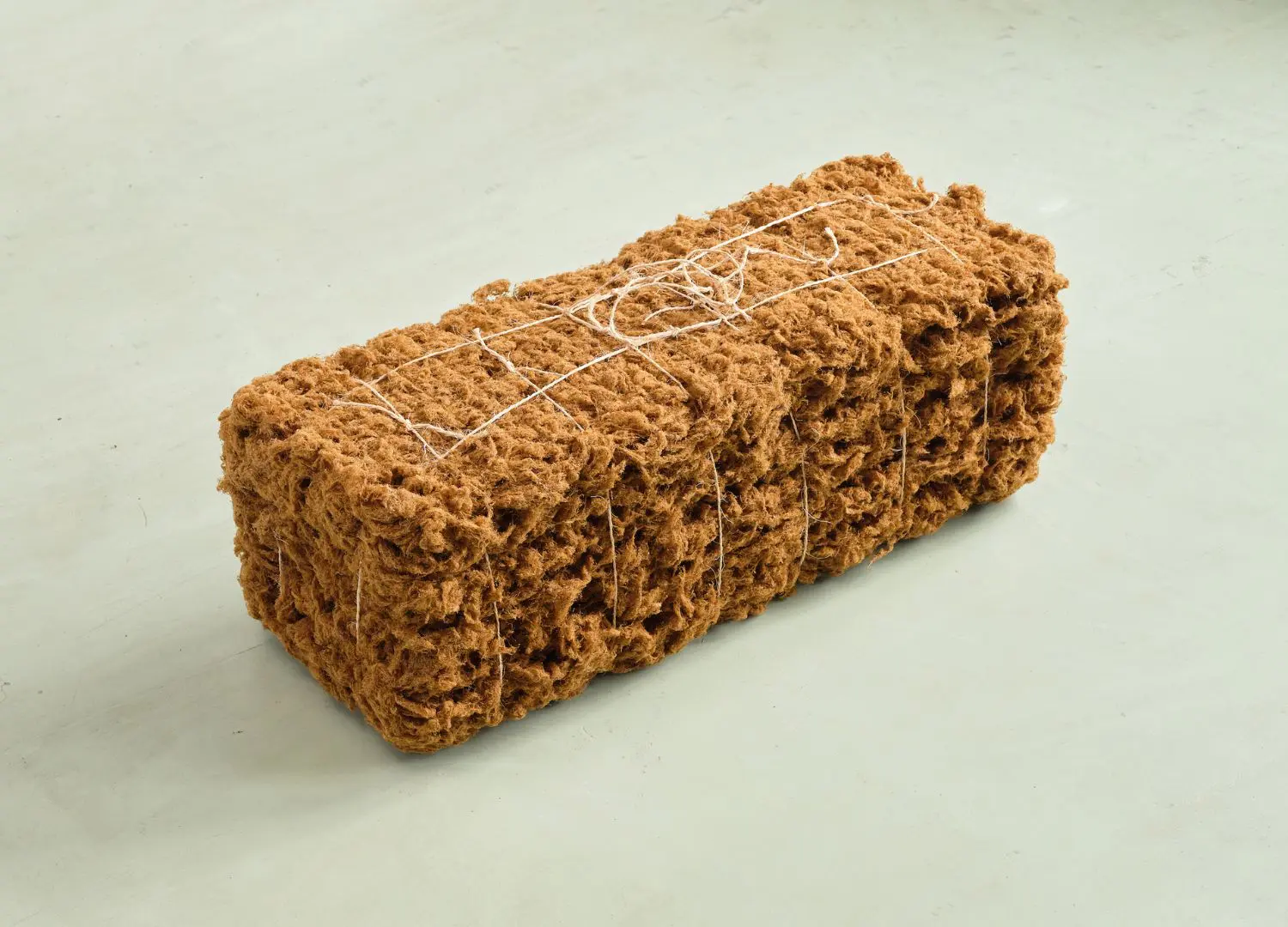
The resulting fiber compound has unique acoustic and insulation properties, the low density makes it lightweight, while remarkable stability ensures that the end products maintain their structural integrity over time. Also, byssus offers an admirable advantage in terms of fire safety as it demands a higher oxygen level for ignition, hence it seldom supports flames. Even in scenarios where smoldering might occur, it tends to cease rapidly. Moreover, when exposed to extreme heat, the cell membrane structure of the byssus swells, creating an insulating layer that hinders the spread of fire.
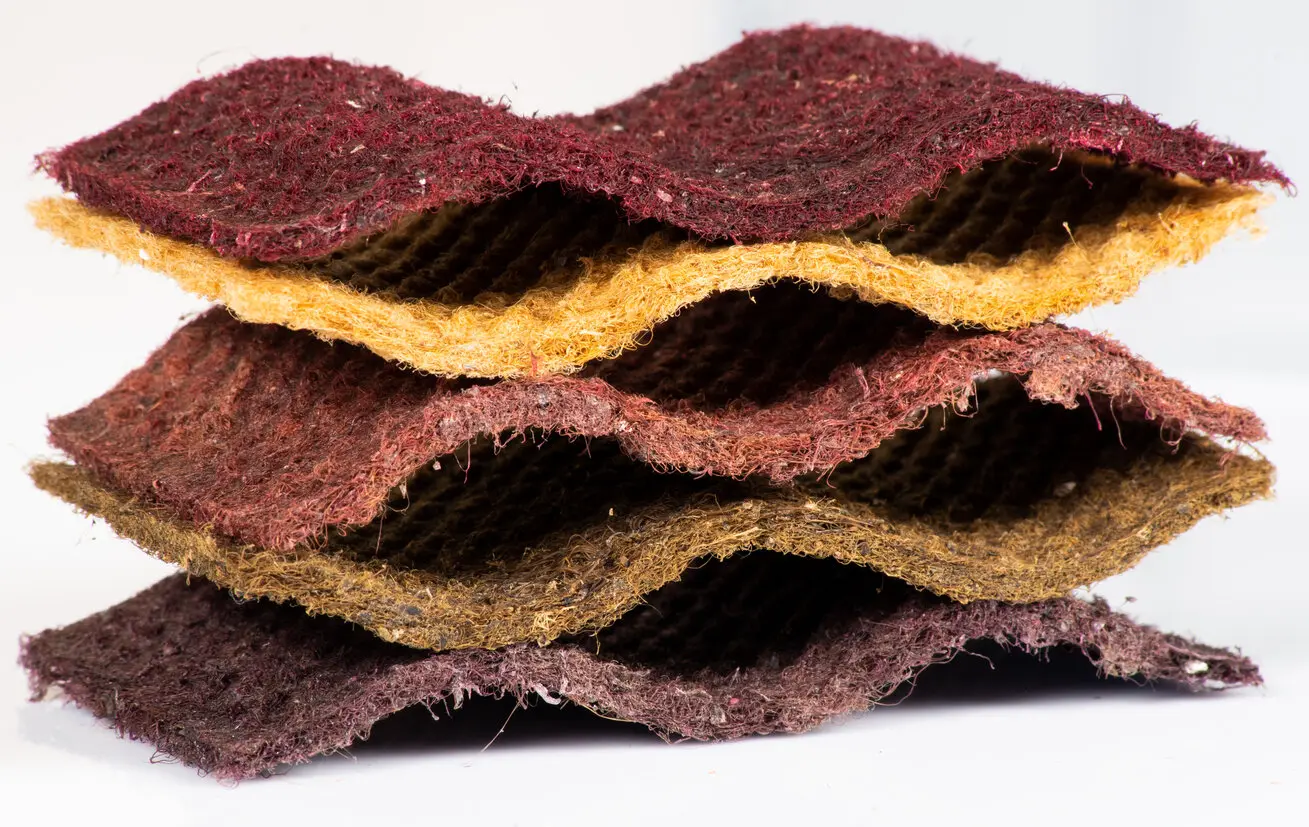
The purified byssus filament can be compressed into panels of different shapes and dimensions and offers extensive applicability when utilized as a non-woven fiber, being suitable for efficient and cost-effective manufacturing processes.
Byssus is a remarkable and versatile material that offers endless possibilities for customization in various applications. Its unique properties make it an ideal choice for molding into different forms.
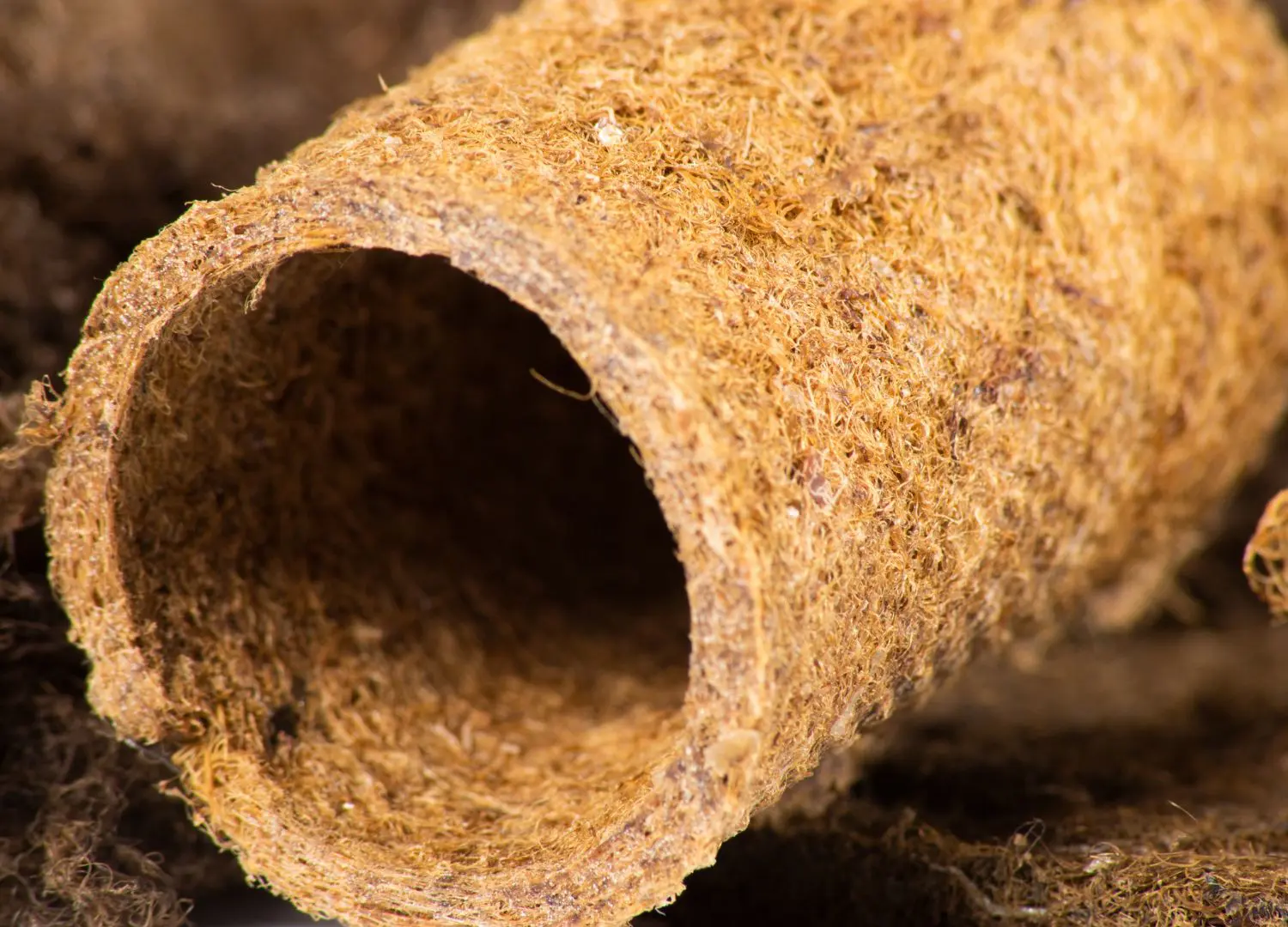
Seastex’s byssus fibers are sourced exclusively from mussels cultivated using the long line or raft culture techniques. These methods produce remarkably longer and stronger fibers compared to other growing techniques. By cultivating mussels in the vast expanse of the open ocean, where powerful currents and intense storms prevail, the robustness and resilience of the byssus fibers are ensured.
ABC Tiles, a versatile solution
Seastex introduced the brand during the London Design Festival in September 2023, where their first product, the ‘ABC Tiles’, was launched. The Acoustic Byssus Core (ABC) Tiles offer a versatile solution to the diverse acoustic challenges faced in various spaces, while an extensive range of formats and vibrant colors are available to choose from.
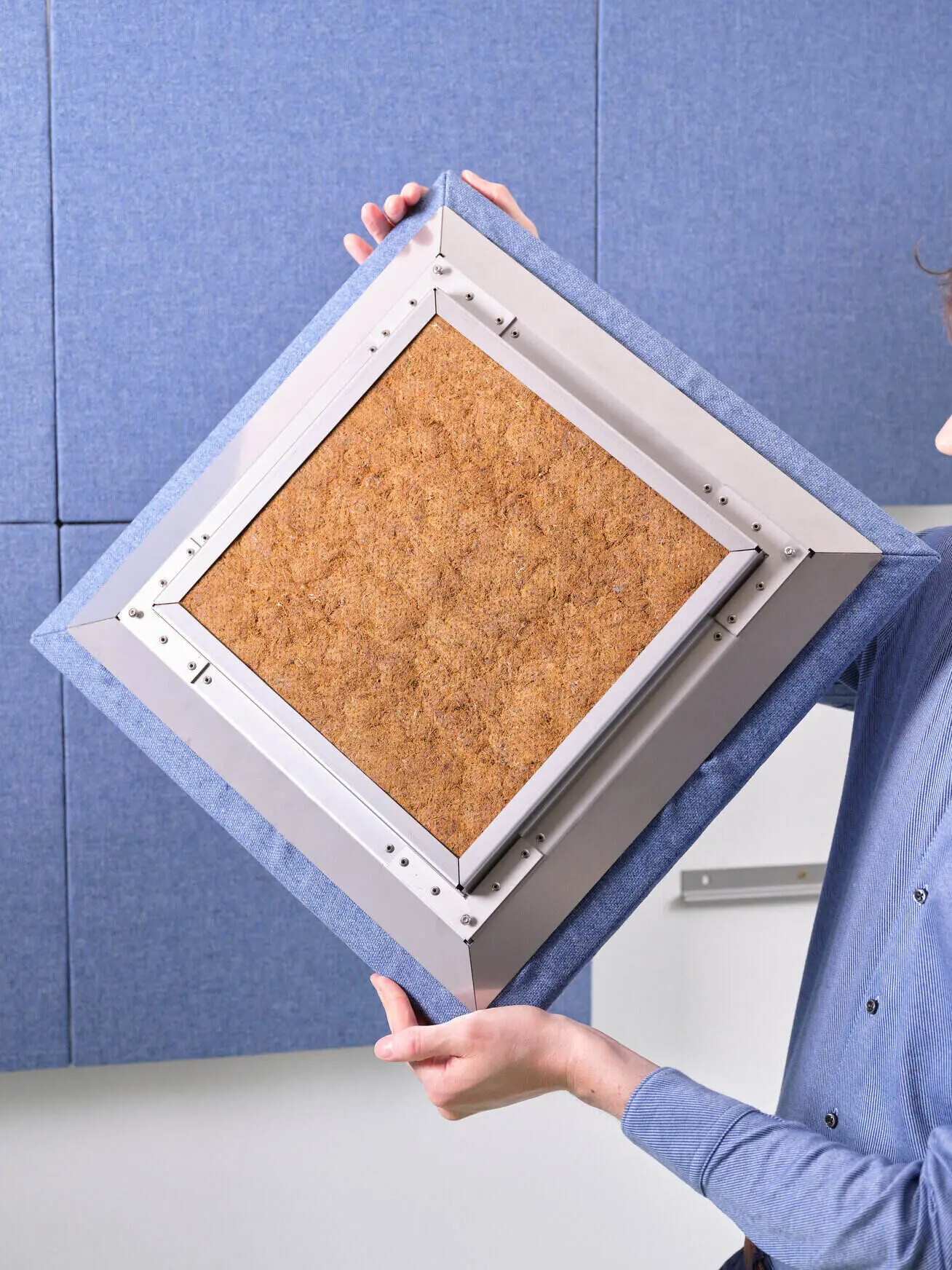
The ABC tiles can be utilized on walls and ceilings across various sectors, including residential, commercial, and industrial projects. The detachable tiles are provided with a top-of-the-line installation system for a quick set-up and a convenient and efficient method of gaining easy access to building services. This feature ensures that maintenance and repairs can be carried out with minimal disruption and inconvenience.
To fabricate the high-performance ABC tiles, Seastex leverages technical expertise, utilizing 3D CAD software, laser cutting and bending technologies, along with the touch of skilled manual labor. This combination of modern techniques and traditional craftsmanship ensures that every frame is meticulously crafted to deliver the utmost performance and durability.
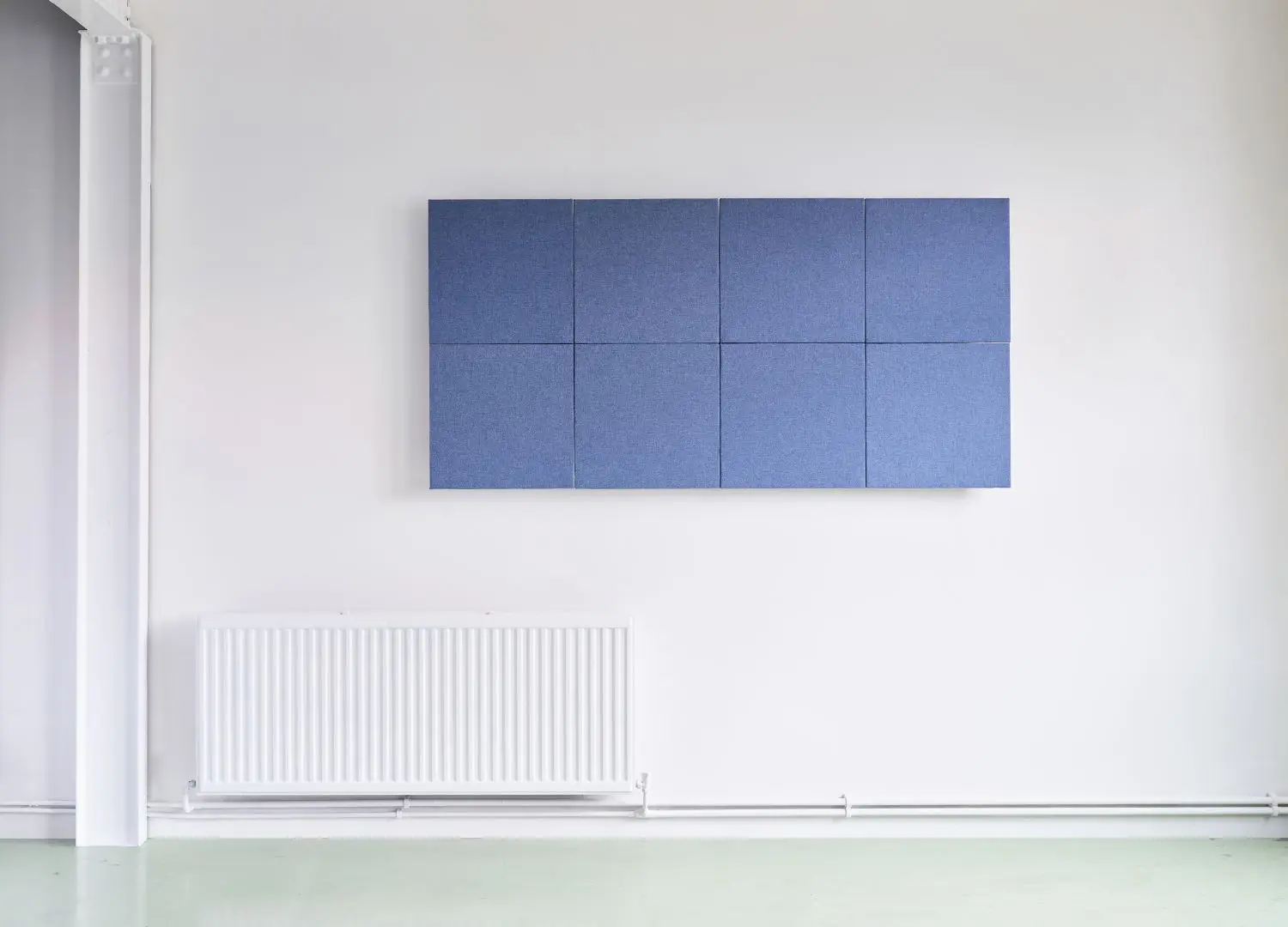
Supporting the circular economy
As part of their circular business model, Seastex offers a free collection service at the end of a product’s life span and compensates their clients for the recovered byssus cores. The company has developed a recycling process that enables the integration of old byssus into new products. This approach extends the active life of byssus indefinitely, unlocking the fiber’s full potential.
Finally, Seastex has introduced a unique solution by paying for the mussel beard waste, which is typically considered a byproduct. By doing so, Seastex not only contributes to the sustainability of the industry but also creates an additional source of revenue for mussel farmers.











